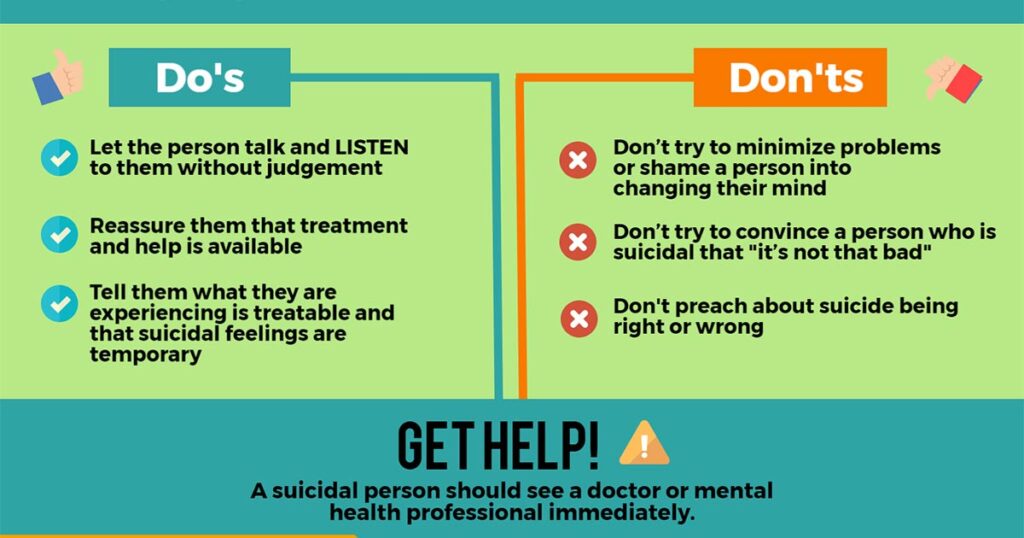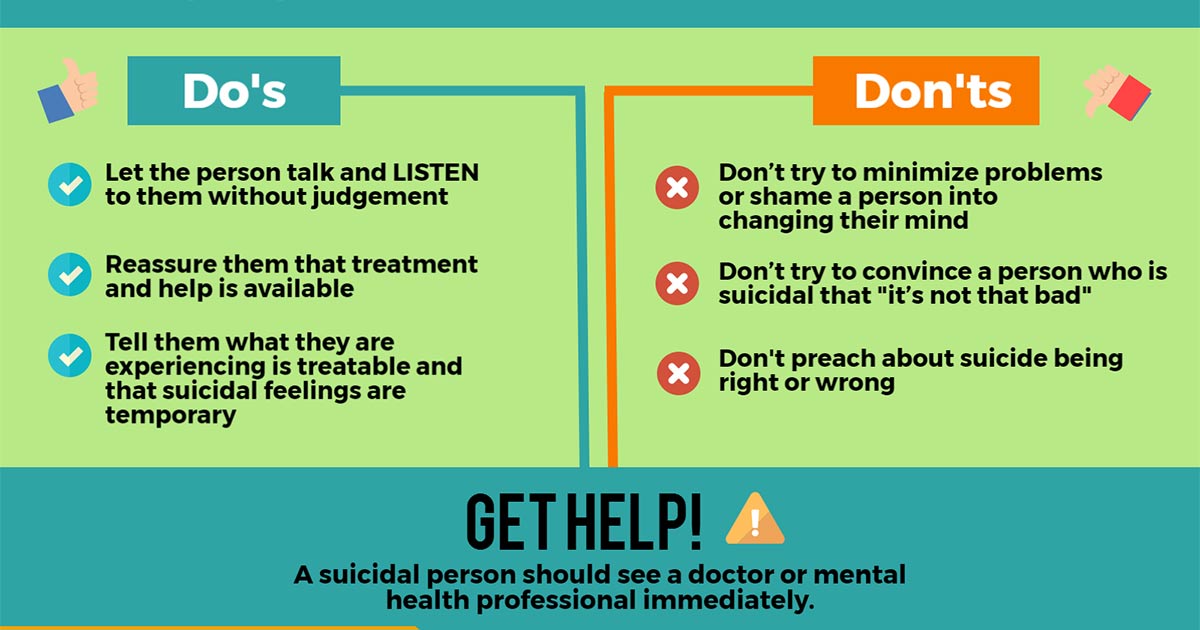
Suicide: How to Cope and Find Help
Navigating life’s challenges can sometimes feel overwhelming. When those challenges lead to thoughts of suicide, it’s crucial to understand that you’re not alone, and help is available. This article provides information on how to cope with suicidal thoughts and where to find immediate assistance. Understanding the complexities of suicide and learning effective coping mechanisms are essential steps in prioritizing your mental well-being. If you or someone you know is struggling with thoughts of suicide, please reach out for help immediately. Remember, seeking help is a sign of strength, not weakness.
Understanding Suicide and Its Impact
Suicide is a complex issue with no single cause. It’s often the result of a combination of factors, including mental health conditions, substance abuse, difficult life circumstances, and a history of trauma. Recognizing the signs and understanding the underlying causes are vital in preventing suicide. The impact of suicide extends far beyond the individual, affecting families, friends, and communities. Understanding the ripple effect of suicide can help us approach the issue with greater sensitivity and empathy.
Risk Factors for Suicide
- Mental health disorders (e.g., depression, anxiety, bipolar disorder)
- Substance abuse
- History of trauma or abuse
- Chronic pain or illness
- Social isolation
- Previous suicide attempts
- Family history of suicide
- Access to lethal means
- Loss of a loved one
- Major life changes or stressors
Warning Signs of Suicide
Recognizing the warning signs of suicide is crucial for intervention. These signs can be subtle or overt, and it’s essential to take them seriously. If you notice any of these signs in yourself or someone you know, reach out for help.
- Talking about wanting to die or feeling hopeless
- Withdrawing from friends and family
- Giving away possessions
- Changes in sleep or eating habits
- Increased substance use
- Neglecting personal hygiene
- Loss of interest in activities
- Feeling agitated or restless
- Isolating oneself
- Expressing feelings of being a burden to others
- Sudden calmness after a period of distress
Coping Strategies for Suicidal Thoughts
When facing suicidal thoughts, it’s vital to have strategies to cope and manage these feelings. These strategies can provide immediate relief and help you navigate through difficult moments. Remember that these are temporary measures, and seeking professional help is crucial for long-term well-being. Learning how to cope with suicidal thoughts is a crucial step in managing mental health and fostering resilience.
Immediate Actions
- Reach Out for Help: Call a suicide hotline, crisis line, or mental health professional immediately.
- Remove Yourself from Danger: If you have access to lethal means, remove them from your environment.
- Connect with Someone You Trust: Talk to a friend, family member, or trusted individual about how you’re feeling.
- Practice Relaxation Techniques: Deep breathing, meditation, or progressive muscle relaxation can help calm your mind.
- Engage in Distracting Activities: Watch a movie, listen to music, or read a book to take your mind off your thoughts.
Long-Term Coping Mechanisms
- Therapy: Cognitive Behavioral Therapy (CBT) and Dialectical Behavior Therapy (DBT) are effective in treating suicidal ideation.
- Medication: Antidepressants and other medications can help manage underlying mental health conditions.
- Support Groups: Connecting with others who have similar experiences can provide a sense of community and support.
- Lifestyle Changes: Regular exercise, a healthy diet, and sufficient sleep can improve your overall mood and well-being.
- Mindfulness Practices: Practicing mindfulness can help you become more aware of your thoughts and feelings without judgment.
- Creative Expression: Engaging in activities like writing, painting, or music can provide an outlet for your emotions.
Seeking Professional Help
Professional help is essential for addressing suicidal thoughts and underlying mental health conditions. Mental health professionals can provide a comprehensive assessment, develop a treatment plan, and offer ongoing support. Don’t hesitate to reach out to a therapist, psychiatrist, or counselor. Seeking professional help is a sign of strength, not weakness. It demonstrates a commitment to your well-being and a willingness to address your mental health challenges.
Types of Mental Health Professionals
- Psychiatrists: Medical doctors who can diagnose and treat mental health conditions with medication.
- Psychologists: Professionals who provide therapy and counseling to address emotional and behavioral issues.
- Counselors: Professionals who offer guidance and support to individuals and families dealing with various life challenges.
- Social Workers: Professionals who provide social services and support to individuals and communities in need.
Finding a Mental Health Professional
- Ask for Referrals: Your primary care physician can provide referrals to mental health professionals in your area.
- Use Online Directories: Websites like Psychology Today and the American Psychological Association offer directories of mental health professionals.
- Check with Your Insurance: Your insurance provider can provide a list of mental health professionals in their network.
- Contact Local Mental Health Organizations: Local mental health organizations can provide referrals and resources in your community.
Supporting Someone Who is Suicidal
If you know someone who is struggling with suicidal thoughts, it’s important to offer support and encouragement. Listen without judgment, validate their feelings, and encourage them to seek professional help. Remember, you don’t have to solve their problems; simply being there for them can make a significant difference. Supporting someone who is suicidal requires empathy, patience, and understanding. It’s important to prioritize their safety and well-being while also taking care of your own mental health.
How to Help
- Listen Actively: Pay attention to what they’re saying without interrupting or judging.
- Validate Their Feelings: Acknowledge their emotions and let them know that their feelings are valid.
- Offer Encouragement: Remind them that things can get better and that they’re not alone.
- Encourage Professional Help: Suggest that they talk to a mental health professional and offer to help them find one.
- Stay Connected: Check in with them regularly and let them know that you care.
- Remove Access to Lethal Means: If possible, remove any access to lethal means, such as firearms or medications.
- Don’t Leave Them Alone: If they’re in immediate danger, don’t leave them alone and call for help immediately.
Resources for Suicide Prevention
Numerous resources are available to help prevent suicide and provide support to those in need. These resources offer immediate assistance, information, and support for individuals and families. Knowing where to turn for help is crucial in a crisis. Accessing these resources can make a life-saving difference.
Crisis Hotlines
- Suicide & Crisis Lifeline: Dial 988
- Crisis Text Line: Text HOME to 741741
- The Trevor Project: 1-866-488-7386 (for LGBTQ youth)
Online Resources
- The American Foundation for Suicide Prevention (AFSP): https://afsp.org/
- The Suicide Prevention Resource Center (SPRC): https://www.sprc.org/
- The National Institute of Mental Health (NIMH): https://www.nimh.nih.gov/
The Importance of Self-Care
Taking care of your mental and physical health is crucial for preventing suicidal thoughts and maintaining overall well-being. Self-care involves engaging in activities that promote relaxation, reduce stress, and improve your mood. Prioritizing self-care is essential for managing mental health and fostering resilience. When you take care of yourself, you’re better equipped to handle life’s challenges and support others. Remember that you are worthy of care and attention.
Self-Care Practices
- Exercise Regularly: Physical activity releases endorphins, which can improve your mood and reduce stress.
- Eat a Healthy Diet: Nutritious foods can provide the energy and nutrients your body needs to function optimally.
- Get Enough Sleep: Adequate sleep is essential for mental and physical health.
- Practice Mindfulness: Mindfulness techniques can help you become more aware of your thoughts and feelings.
- Connect with Others: Spend time with friends and family and engage in social activities.
- Engage in Hobbies: Pursue activities that you enjoy and that bring you joy.
- Set Boundaries: Learn to say no to requests that drain your energy or cause you stress.
- Practice Gratitude: Focus on the positive aspects of your life and express gratitude for what you have.
Breaking the Stigma Around Suicide
Stigma surrounding suicide often prevents people from seeking help and talking openly about their struggles. Breaking the stigma is crucial for creating a more supportive and understanding environment. By talking openly about suicide and mental health, we can encourage others to seek help and reduce the shame and guilt associated with suicidal thoughts. Creating a culture of empathy and understanding is essential for preventing suicide and promoting mental well-being.
How to Break the Stigma
- Educate Yourself: Learn about suicide and mental health to dispel myths and misconceptions.
- Talk Openly: Share your experiences and encourage others to do the same.
- Use Respectful Language: Avoid using stigmatizing language and focus on empathy and understanding.
- Support Mental Health Initiatives: Advocate for policies and programs that promote mental health and suicide prevention.
- Challenge Stereotypes: Challenge negative stereotypes and misconceptions about mental illness and suicide.
Suicide is a serious issue, and understanding how to cope with suicidal thoughts is crucial. Remember, help is always available. By understanding the risk factors, warning signs, and coping strategies, we can work together to prevent suicide and support those in need. If you’re struggling with thoughts of suicide, please reach out for help. Your life is valuable, and you deserve support. Learning how to cope effectively is a crucial step in managing mental health and fostering resilience. If you or someone you know is struggling with thoughts of suicide, please reach out for help immediately. Remember, seeking help is a sign of strength, not weakness. Prioritize your mental well-being and seek support when you need it. Understanding the complexities of suicide and learning effective coping mechanisms are essential steps. This article provides information on how to cope with suicidal thoughts and where to find immediate assistance. If you are experiencing suicidal thoughts, remember that you are not alone and there are ways to cope. There are people who care about you and want to help you through this difficult time. Learning how to cope with these feelings is a crucial step towards healing and finding hope again. Don’t hesitate to reach out and seek assistance. It’s a sign of strength, not weakness, to ask for help when you’re struggling. Many resources are available to assist you in learning how to cope and finding a path toward recovery. Remember, you don’t have to face this alone.
[See also: Understanding Depression and Finding Treatment]
[See also: Anxiety Disorders: Symptoms, Causes, and Treatment]
[See also: Building Resilience: Overcoming Life’s Challenges]

